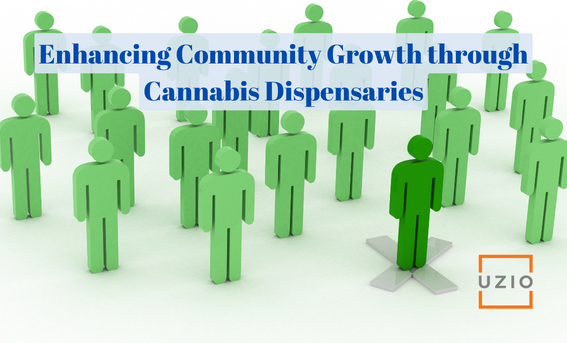
The Role of Cannabis Dispensaries in Community Development
Quick links
-
Introduction to Cannabis Dispensaries and Their Growth
-
Economic Impact of Dispensaries on Local Economies
-
Case Studies of Economic Revitalization
-
Social Contributions and Community Engagement
-
Challenges and Controversies Surrounding Dispensaries
-
Future Outlook and Potential Developments
-
Conclusion
1. Introduction to Cannabis Dispensaries and Their Growth
Cannabis dispensaries have become a prominent fixture across the United States, evolving significantly with the legalization of medical and recreational cannabis. Initially established to serve patients requiring medical marijuana, dispensaries have expanded into recreational markets, catalyzing both economic and social transformations in their communities.
2. Economic Impact of Dispensaries on Local Economies
Dispensaries contribute significantly to local economies through job creation and increased business revenues. The cannabis industry has been a job engine, creating positions ranging from retail staff to security. This influx of jobs often leads to a ripple effect, boosting local economies. Property values in areas close to dispensaries have also seen an uptick, contrary to initial fears of decline.
3. Case Studies of Economic Revitalization
In regions like Colorado and California, dispensaries have played pivotal roles in revitalizing communities. For example, certain Colorado towns have reported increased tourism and higher local spending attributable to the presence of dispensaries. Interviews with economic development officers underscore the positive fiscal impact through increased tax revenues dedicated to public services and infrastructure improvements.
4. Social Contributions and Community Engagement
Beyond economic impacts, dispensaries actively engage in community development through various programs. Many organize educational sessions about responsible cannabis use and participate in public health initiatives, significantly contributing to community welfare.
Partnerships with Local Organizations
Cannabis dispensaries often collaborate with healthcare providers to educate on medicinal cannabis benefits, with schools on substance misuse programs, and with non-profits on community service projects. These partnerships help integrate dispensaries into the community fabric, promoting public health and safety.
5. Challenges and Controversies Surrounding Dispensaries
Despite the benefits, dispensaries face challenges, including community opposition and complex legal landscapes. Concerns often include fears about increased crime (though studies frequently debunk this), traffic, and changes in community character.
Navigating Community Relations
To improve community relations, many dispensaries take proactive steps such as hosting open houses, participating in community clean-ups, and involving community members in decision-making processes. Success stories of dispensaries overcoming initial resistance through transparency and engagement have become increasingly common.
6. Future Outlook and Potential Developments
Looking ahead, the role of dispensaries in community development is poised to grow. With continued legalization and destigmatization, dispensaries could play even more integral roles in their communities. Innovations in product offerings and business models, such as incorporating social equity programs, could further enhance their impact.
Recommended Reading: Top-7 Cannabis Trends to Watch out for in 2024
7. Conclusion
Cannabis dispensaries, once viewed with skepticism, have demonstrated substantial benefits to their communities through economic contributions and social engagement. As the industry matures, it holds the potential to play a pivotal role in shaping more vibrant, robust, and equitable communities. Leaders and policymakers are encouraged to consider these benefits and work towards regulatory frameworks that maximize the positive impacts of dispensaries on community development.
Get in touch with us for an expert-led demo to know more about UZIO all-in-one payroll software.





